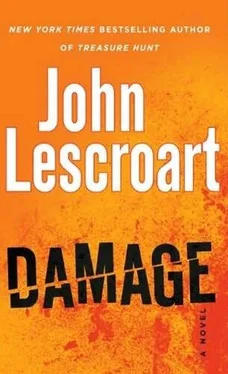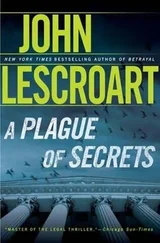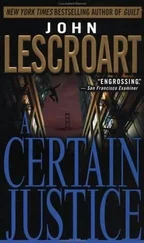“Doesn’t it, though?”
“So what are you going to do?”
“I don’t know. It looks like it’s all going to come down to Janice Durbin, but we don’t have anything solid on Ro there. At least I’d like to resolve my doubts about the husband before Wes goes ahead with the grand jury.”
“Well, something will either break there or it won’t.”
“Yeah, but I don’t want the next break to come in connection with another murder.”
“Like who?”
“I don’t know. Anybody. Wes, Amanda, me. I’m not kidding you. The other and now last witness from his trial, if he can find her.”
“Who is she?”
“Gloria Gonzalvez. One of his rape victims.”
“You got her in protection?”
“No.” Glitsky’s face showed his frustration. “I can’t find her, either.”
A frown creased Hardy’s brow. “So as it stands now, she’s not testifying in the retrial?”
“Not unless we can locate her.”
“So even that retrial… you’ve got testimony but no actual witnesses?”
“Right.”
Hardy made a noise in his throat that Glitsky read very clearly-without witnesses, even the retrial was in very serious jeopardy. Ro might never actually get back into prison. Hardy had another sip of Scotch. Frannie appeared from the back of the house and asked Abe if he’d like a refill on his tea.
“I think I’m good, thanks.”
Frannie nodded, hesitating, and then said, “I know it’s short notice, but we just found out our little darlings are both going to be home this weekend. Maybe you and Treya and the kids could come over on Saturday for dinner, just simple.”
Glitsky took another moment before he said, “They’ve all gone down to her brother’s in LA. More of this Ro Curtlee stuff. Treya’s afraid Ro’s going to come after one of the kids.”
“Treya’s not afraid of anything,” Frannie said.
“Well, not much,” Glitsky admitted. “But Ro Curtlee got her attention. She’s definitely afraid of him.”
“So when’s she coming back?” Frannie asked.
“That,” Glitsky said, “is a good question. Hopefully someday.”
Hardy reacted immediately, coming forward in his chair, leaning in toward his friend. “Oh, come on, Abe. Of course she’s coming back.”
Glitsky nodded thoughtfully, as though he were considering the question. At last, he let out a short breath. “That’s the hope,” he said, “but I’m not sure I’d bet on it.”

When she heard the voice on the intercom say that it was Michael Durbin at her door, Liza didn’t know what to make of it at first.
He had never before been to her place, a nice one-bedroom apartment at Chestnut and Laguna, not far from the store. Liza had been more than a little bit in love with him now for well over a year. The feeling had developed from an original natural simpatico-she’d had another boyfriend at the beginning-that had turned to friendship in the years that they’d worked together.
And then finally at the Christmas party two Decembers ago, they had been shooting pool together at one of the North Beach bars they’d all repaired to after the dinner, and as she leaned over to take her shot-she was wearing a low but not particularly plunging neckline-she noticed him noticing her. Janice had already gone home and Liza had definitely had too much to drink. Michael had smiled and shrugged as if to say, “You caught me.” Her eyes had locked into his and she straightened up, walked around the table right up to him, and told him flat out that she loved him.
He told her he loved her, too, and then leaned down and kissed her with a deep, passionate, open-mouthed hungry kiss that had weakened her knees.
But then, almost immediately afterward, while they were still holding each other, he realized what he’d done, and he pulled away, saying he was sorry, he shouldn’t have done that, it had been a mistake.
The next Monday, back at work, he’d taken her out to lunch and apologized again. It wasn’t that he didn’t find her attractive, he told her, and didn’t love the person she was, but he was married to Janice and committed to her and to their family. He’d had a moment of infatuation with Liza that in his weakness he’d given in to, but that was all there could ever be between them.
If she was uncomfortable continuing to work with him, he’d understand and help her find another job with at least equal pay and benefits if he could. Or, of course, if she’d like to stay on, he would be happy to keep her, but there could be no repetition of what had happened the other night.
And there had not been.
Without hesitation, she pushed the button that opened the downstairs door and let him in. And now she opened the door to her apartment, and he came out of the elevator and turned to see her standing there. When he got to her, she stepped into his arms and they stood embracing, holding on to each other as though for their lives.
Ro’s idea from earlier in the day was more or less in the line of a game.
He had been talking to Tiffany about some of the things that had changed in the years that he’d been in prison, not just iPods and phones and all the technology, but the other changes that made the world feel so different in the day-to-day.
The giant malls and the enormous discount stores, with everything you could ever want to buy all in one place. Or, on the opposite scale, all the closed-up independent bookstores. Now, you wanted to buy a book, Tiffany said, you had your basic one or two choices, Borders and Barnes & Noble, and they were pretty much the same. Or coffee shops, Starbucks on every corner. Who could have predicted that? And for coffee?
But that example had led Tiffany to tell him about another one of the latest things going around in the city, which she had at first found hard to believe, but which, according to some friends of hers who’d actually seen it, wasn’t even uncommon-people were carrying guns openly around in public. This was mostly facilitated, evidently-according to Tiffany-by Twitter and Facebook and other stuff on the Web about which Ro was ignorant, but these people would somehow all get in touch with one another and meet at some predetermined Starbucks location, where they were making some Second Amendment point by showing up wearing their guns out in holsters like in the Wild West.
This was happening every day, she said, and why at Starbucks stores she didn’t know. But it wasn’t only the coffee shops. Over just the past weekend, a posse of more than seventy people had showed up at Baker Beach, all of them carrying. Wild, huh?
Ro thought so.
The catch was that the guns could not be loaded. That would be illegal, as there were city, county, and state laws forbidding carrying loaded weapons around. But astoundingly to Ro, carrying the unloaded guns themselves, as long as they were not concealed, was not only not illegal, it was specifically protected by the Second Amendment.
Which made no sense, because you could carry your piece unloaded with a clip or four in your pockets and basically load up the gun in about the time it took to rack a round into the chamber. But the point, to him, wasn’t whether it made any sense but that it happened at all. People walking around with perfectly usable guns on their hips? He told Eztli that the two of them really ought to go around the city and see if they could find one of the hot spots, and that’s what they’d done.
They got lucky just about the time they were going to quit, getting on toward five o’clock, at a Starbucks pretty close to where they’d begun at MoMo’s, out at Fisherman’s Wharf. As they drove by, from the street they saw not only that the place seemed to be unusually crowded, but three black-and-white patrol cars were pulled up out front. Neither Eztli nor Ro had any fear of the police in general, and beyond that they knew that the policemen here at Starbucks were beat cops. If anything, their presence added to the spice. So Eztli pulled into a parking garage a block away, removed the bullets from his own weapon, and tucked the gun into his belt. He also removed the jacket from his suit, leaving it on the car seat, so there would be no misunderstanding about whether the gun was concealed or not.
Читать дальше













